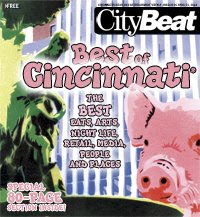 The Ohio Ecological Food & Farm Association (OEFFA) will hold its 31st annual conference, Growing with Integrity, Eating with Intention, February 13-14, 2010 in Granville, Ohio at Granville Middle and High schools. The conference will feature keynote speakers Joel Salatin and Chef Ann Cooper; workshops; exhibitors; a kids’ conference; locally-sourced meals; a child care area; and Saturday evening entertainment.
The Ohio Ecological Food & Farm Association (OEFFA) will hold its 31st annual conference, Growing with Integrity, Eating with Intention, February 13-14, 2010 in Granville, Ohio at Granville Middle and High schools. The conference will feature keynote speakers Joel Salatin and Chef Ann Cooper; workshops; exhibitors; a kids’ conference; locally-sourced meals; a child care area; and Saturday evening entertainment.
Keynote speaker Joel Salatin is one of the best-known farmers of the sustainable food movement. Joel’s family farm in Swoope, VA serves more than 1,500 families, 10 retail outlets, and 30 restaurants with grass-fed beef, pastured poultry, eggs, pork, forage-based rabbits, and pastured turkey. In his Saturday evening talk, Everything I Want to Do Is Illegal, Joel will get to the heart of the local food movement challenge. From zoning to food safety to insurance, local food systems face regulatory hurdles designed and implemented to benefit industrial food models. Joel will call for guerrilla marketing and other solutions. Joel will also be speaking at an all-day pre-conference event, Ballet in the Pasture, on Friday, February 12, at which he will discuss how his farm’s choreographed plant-animal symbiosis heals the landscape, the community, and the eater.
Author and educator Chef Ann Cooper is an advocate for better food for all children. Chef Ann’s mission is to transform the National School Lunch Program through lunch menus emphasizing regional, organic, fresh foods, and nutritional education. In her Sunday evening keynote address, Chef Ann will detail the importance of changing the way our children eat and why parents, schools, farmers, food service providers, and governments must work together.
In addition, the conference will feature more than 60 hands-on, educational workshops with topics including: cheese-making, becoming a successful farmers’ market vendor, off-grid energy production, goat husbandry, organic certification, weed control, successful farmers’ market management, social networking, green building, organic dairying, urban gardening, fruit production, organic grain production, pastured poultry, sustainable agriculture policy and grassroots organizing, soil testing, rain water harvesting, pruning, pork production, community kitchens, on-farm record-keeping, tree grafting, healthy lunch programs, green cleaning products, drip irrigation, worm composting, farming with horses, beekeeping, renewable energy, and cover crops.
The conference will also feature a kid’s conference offering a variety of workshops for children ages 6-12; a playroom for children under 6, a book signing by Joel Salatin, an exhibit hall offering an array of information, products, services and resources that relate to sustainable agriculture; and a Saturday evening film screening featuring King Corn’s Curt Ellis.
The Ohio Ecological Food & Farm Association (OEFFA) is a non-profit organization founded in 1979 by farmers, gardeners, and conscientious eaters who committed to work together to create and promote a sustainable and healthful food and farming system.
To register or for more information about the conference, including maps, directions, workshops, speakers, and a schedule, visit the website or email Renee.
 There's a fantastic post by The Ethical Butcher on why choosing Heritage Breeds is crucial to developing sustainable meat production.
There's a fantastic post by The Ethical Butcher on why choosing Heritage Breeds is crucial to developing sustainable meat production. 
















